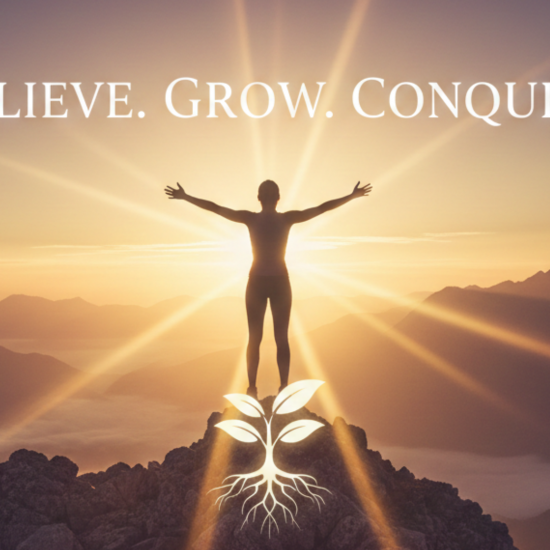Self-development is a journey, not a destination. It’s about consistently becoming a better version of yourself, building resilience, and aligning your actions with your goals. While books and online resources provide valuable insights, sometimes what we truly need is guidance and accountability. That’s where a life coach comes in. A life coach doesn’t hand you the answers on a silver platter. Instead, they help you uncover the tools, clarity, and inner strength you already possess. Life coaching is about empowerment giving you the structure and strategies to move from where you are today to where you want to be.
What Is Life Coaching?
Life coaching is a professional practice focused on helping individuals identify their goals, overcome obstacles, and create actionable plans for success. Unlike therapy, which often addresses past trauma or emotional healing, life coaching is future-focused. It’s about progress, growth, and accountability.
Whether it’s career advancement, personal development, or building healthier habits, a life coach works alongside you to:
- Define clear, achievable goals
- Provide structure and accountability
- Challenge limiting beliefs
- Celebrate your wins and growth
At its core, life coaching is about transformation through consistent action.
Why Work With a Life Coach?
You may wonder: can’t I just figure things out on my own? Yes, you can but a life coach can accelerate the process.
Here’s how life coaching makes an impact:
- Clarity – A life coach helps you cut through the noise and focus on what truly matters.
- Accountability – Goals without accountability often fade. A coach ensures you stay on track.
- Personalized Strategies – Everyone’s path is unique. Life coaching tailors advice to your situation.
- Confidence Building – By helping you recognize strengths and overcome doubts, a coach nurtures lasting confidence.
Self-Development Tips From a Life Coach’s Toolkit
1. Start With Self-Reflection
Life coaching begins with awareness. Ask yourself: What do I truly want? What’s holding me back?
Journaling, meditation, or guided reflection exercises help uncover values and hidden patterns. Without clarity, self-development becomes directionless.
Tip: Each morning, jot down three things you’re grateful for and one area where you’d like to grow.
2. Set SMART Goals
A life coach always emphasizes SMART goals Specific, Measurable, Achievable, Relevant, and Time-bound. Vague goals like “I want to be healthier” lack direction. Instead:
- “I will exercise for 30 minutes, 4 times a week for 2 months.”
Breaking goals into smaller steps makes progress achievable and less overwhelming.
3. Challenge Limiting Beliefs
We all have inner narratives that hold us back “I’m not good enough,” “It’s too late to change,” or “Success is for others, not me.” Life coaching helps identify and reframe these beliefs.
Exercise: When a negative thought arises, ask: Is this belief based on facts or fear? What’s a more empowering perspective?
4. Build Consistent Habits
Lasting change doesn’t come from one big decision, but from small, consistent actions. Life coaches often use habit-stacking: attaching a new habit to an existing one.
For example:
- After brushing your teeth → meditate for 5 minutes.
- After morning coffee → write down your top 3 priorities.
These micro-shifts compound over time, fueling self-development.
5. Embrace Accountability
One of the strongest elements of life coaching is accountability. When someone checks in on your progress, you’re more likely to follow through.
Self-Coaching Tip: If you don’t have a coach, find an accountability partner a friend or colleague who shares goals and tracks progress with you.
6. Focus on Strengths, Not Just Weaknesses
Life coaches know growth doesn’t only mean fixing flaws. It’s about amplifying what you already do well.
Tip: List your top 5 strengths. Ask: How can I use these more in my work, relationships, and personal growth? This shift builds confidence and energy.
7. Develop Emotional Intelligence (EQ)
Life coaching emphasizes EQ the ability to understand and manage emotions, both your own and others’. High EQ improves communication, leadership, and resilience.
Practice: Before reacting in a stressful situation, pause and ask: What am I feeling right now? What outcome do I want?
8. Prioritize Self-Care
Self-development without self-care leads to burnout. A life coach encourages balance — nurturing physical, emotional, and mental health.
Simple Practices:
- Sleep 7–8 hours nightly
- Move your body daily
- Practice mindfulness or deep breathing
- Set boundaries in work and relationships
9. Learn to Reframe Failure
Life coaches teach that setbacks aren’t the end they’re feedback. Every failure reveals lessons that can shape your future success.
Instead of “I failed,” reframe to “I learned what doesn’t work.” This perspective builds resilience and fuels continuous growth.
10. Celebrate Progress
In the pursuit of big goals, we often overlook small wins. A coach ensures you pause to celebrate milestones because recognition builds motivation.
Tip: End each week by writing down 3 wins, no matter how small. This builds momentum and keeps you moving forward.
Life Coaching and Long-Term Self-Development
Self-development isn’t about perfection. It’s about progress. And life coaching aligns with that philosophy by offering tools, structure, and encouragement to keep moving.
When applied consistently, the tips above help you:
- Build clarity and direction
- Replace self-doubt with confidence
- Create habits that stick
- Bounce back stronger after setbacks
- Unlock your full potential
Whether you work directly with a life coach or use these strategies independently, the key is consistent action.
A life coach is not there to solve your problems. They’re there to empower you to solve them yourself. With the right toolkit — reflection, goal-setting, accountability, and resilience — you can transform your mindset and your results.
Remember: self-development is about becoming more aligned with your values, goals, and vision. Every small step compounds into lasting change. And with insights from life coaching, your journey becomes more focused, meaningful, and rewarding.





